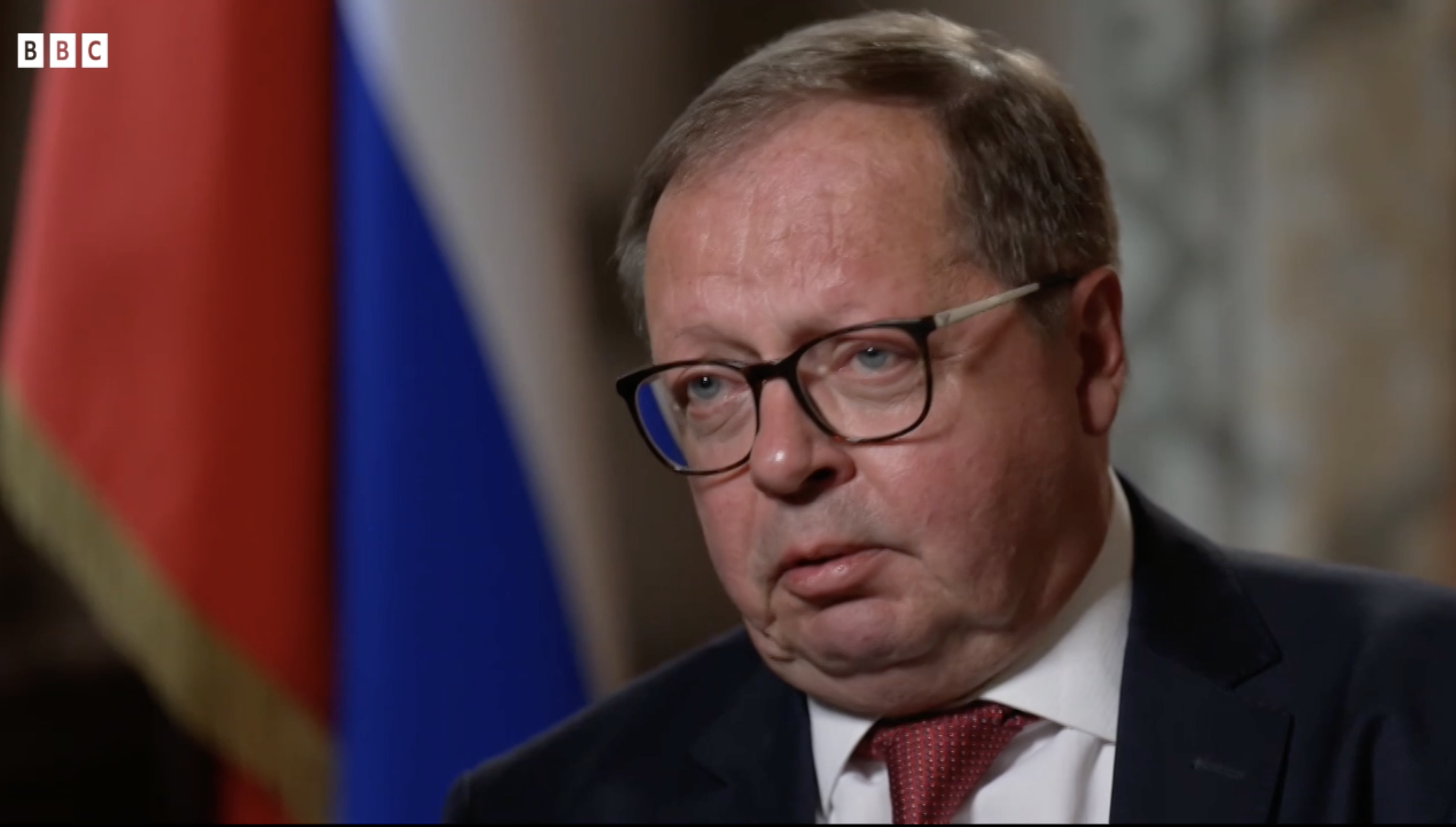Russia’s ambassador to the UK, Andrei Kelin, did not deny allegations that Russian sensors have been hidden in seas around Great Britain to track UK nuclear submarines, BBC reports.
When asked on BBC One’s Sunday with Laura Kuenssberg whether he objected to the claims, Kelin simply responded: “No.”
“I am not going to deny it, but I wonder whether we really have an interest in following all the British submarine with very old outdated nuclear warheads… all these threats are extremely exaggerated,” Kelin stated.
However, the ambassador rejected suggestions that such activities posed a threat to the UK.
“I’m denying existence of threats for the United Kingdom. This threat has been invented, absolutely, there is no threat at all from Russia to the UK,” he added when pressed further.
These activities have been characterized as part of a “hybrid” or “grey zone” war being conducted by Russian President Vladimir Putin, which could also include damaging infrastructure assets like energy pipelines.
The accusations come amid heightened maritime tensions. In March, the Royal Navy released images of a Russian warship named Boikiy that it had tracked sailing near British waters. This is reportedly one of several Russian vessels monitored near the British coast in recent months.
In January, Defence Secretary John Healey informed MPs that the Royal Navy had monitored a Russian spy ship called Yantar after it was spotted around UK waters, accusing the vessel of being used to gather intelligence and map the UK’s underwater infrastructure.
Former Conservative Defence and Foreign Office minister Tobias Ellwood expressed concern that the UK is “behind the curve” in tracking Russia’s deep-sea operations.
He told the Guardian earlier this month that the use of sensors was “only half the story,” claiming Russia established “remote seabed platforms” off the UK coast that serve as recharging stations for mini-submarines “to map our undersea cable networks for potential sabotage.”
A Ministry of Defence spokesperson stated:
“We are committed to maintaining and enhancing the security and resilience of critical undersea infrastructure. Just as the defence secretary called out the activities of the Russian spy ship Yantar hovering over our undersea cables, let those who threaten the UK or our allies be in no doubt that we will defend our undersea infrastructure.”
Last December, a Russian tanker, Eagle S, damaged the Estlink 2 cable between Finland and Estonia by dragging its anchor over it. Eagle S is part of Russia’s “shadow fleet,” created to bypass EU and G7 sanctions, which is comprised mostly of aging tankers and cargo vessels.




